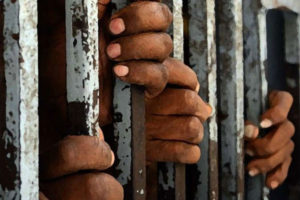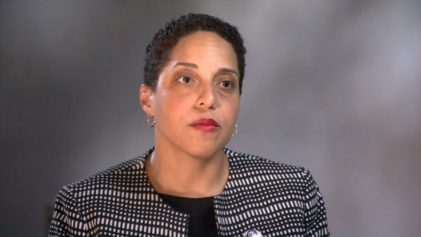
There are many terms for solitary confinement, including administrative segregation, the hole, Security Housing Unit or Special Housing Unit (SHU), Restricted Housing Unit (RHU), Communication Management Unit (CMU), maximum security, or isolation. Whatever the practice is called, it is an American human rights disaster that is widely found in U.S. prisons, with devastating consequences for the mental and physical health of those who are subjected to it.
Solitary Watch defines solitary confinement as “the practice of isolating prisoners in closed cells for 22-24 hours a day, virtually free of human contact, for periods of time ranging from days to decades.” Few prison systems use the term ‘solitary confinement,’ instead referring to prison “segregation.”
There are an estimated 75,000 state and federal prisoners held in solitary confinement, according to the New York Times. Further, Congress and over a dozen states are considering limits on the punishment.
“Do we really think it makes sense to lock so many people alone in tiny cells for 23 hours a day, sometimes for months or even years at a time?” Mr. Obama asked at the recent NAACP convention in Philadelphia. “That is not going to make us safer. That’s not going to make us stronger. And if those individuals are ultimately released, how are they ever going to adapt? It’s not smart.”
Solitary confinement was brought into the spotlight recently with the suicide of Kalief Browder. At age 16, Browder was charged with stealing a backpack and sent to Rikers Island, an adult jail facility in New York City. He spent three years at Rikers—including two in solitary, and suffered abuse from guards and inmates. Browder attempted suicide before his case was dismissed and he was released.
In the U.S. Supreme Court case Davis v. Ayala, in which the court granted a new trial for a mentally disabled inmate, Justice Anthony Kennedy had harsh words for solitary confinement.
“Years on end of near-total isolation exacts a terrible price,” he wrote. “The human toll wrought by extended terms of isolation long has been understood, and questioned, by writers and commentators… One hundred and twenty-five years ago, this Court recognized that, even for prisoners sentenced to death, solitary confinement bears “a further terror and peculiar mark of infamy,” Kennedy added.
The justice noted that side-effects of solitary confinement include “anxiety, panic, withdrawal, hallucinations, self-mutilation, and suicidal thoughts and behaviors.”
Further, as Jeffrey L. Metzner, MD, and Jamie Fellner, Esq. wrote in the Journal of the American Academy of Psychiatry and the Law in 2010, isolation can be harmful to any prisoner, “with the nature and severity of the impact depending on the individual, the duration, and particular conditions (e.g., access to natural light, books, or radio). Psychological effects can include anxiety, depression, anger, cognitive disturbances, perceptual distortions, obsessive thoughts, paranoia, and psychosis.”
Human rights organizations and international bodies and experts, including U.N. Special Rapporteur on Torture, conclude that solitary confinement is cruel, inhuman, or degrading treatment, and a violation of the International Covenant on Civil and Political Rights, and the Convention against Torture and other Cruel, Inhuman, and Degrading Treatment or Punishment. While only a few days in the hole is enough to damage an individual, some prisoners have languished for years and decades in solitary confinement.
A new dramatic web series from Think Ten Media Group called, The wHole, is raising awareness about the outrage and injustice that is solitary confinement, with actors, producers and crew having personal experience with solitary.
In the pilot episode, viewers are made to understand the torture that occurs in U.S. prisons by viewing a depiction of a Black man being held in solitary confinement, and the impact it has on his mind. Filmmakers Ramon Hamilton and Jennifer Fischer hope the film furthers the dialogue and helps bring about meaningful change, including alternatives to punishment, by presenting the humanity of those connected with the system.

